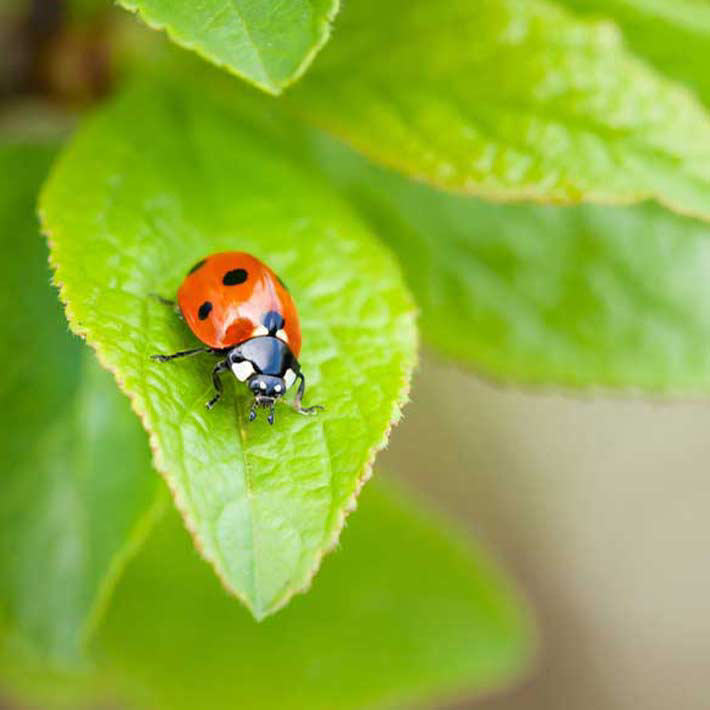How to bring wildlife into your garden
-
Open a bird café
Put out a mix of food and water every day, making sure they're up out of reach of any cats. Home-made fat peckers or store cupboard staples like oats and sunflower seeds are favourites for bird feeders and tables. -
Build a multi-storey bug hotel
This will provide lots of hidey-holes for insects like ladybirds and bees. Look through the shed for bits of wood, bamboo canes and old terracotta pots. Then hunt round the garden for moss, dry leaves, pine cones and bits of bark to pop into the nooks and crannies of your bug retreat. -
Sow a little patch of wildflowers from seed
These will offer food and shelter for lots of garden creatures. Try easy to grow bright red poppies or white oxeye daisies to attract insects and birds. Small mammals like shrews and voles will also use their leaves as cover.
-
Make a hedgehog haven
Welcome our prickly friends to your garden by giving them a place to shelter. Fill an old wooden box with dry leaves or straw, then tuck it into a secluded shady corner, preferably one with lots of snails nearby to tempt them. Small holes in fences will let them wander from garden to garden. -
Prepare a butterfly banquet
A feast of over-ripe fruits will keep them fit, healthy and coming back for more. Sweet gooey foods are their favourite, so think mushy apples, black spotty bananas, sliced oranges or sugar water. Put them out on a plastic plate tucked into the foliage near their favourite flowers. -
Make a bumble bee booster
Mix a quick energy drink to give tired bumble bees an extra energy boost when they stop by on their way home to their hives. Mix two tablespoons of white sugar with one of water to make a syrupy solution, putting it out for them on a teaspoon, egg cup or upturned plastic lid.

Top tips
Re-use unwanted bits and bobs from the garden shed to make your wildlife creations. Recycling pre-loved items is an important part of sustainable gardening, supporting our wildlife and wider environment.
Bird tables and feeders are best positioned near a tree or shrub birds can retreat too if predators come near. Help keep your birds healthy by regularly cleaning feeders and tables of old food.
Wild flowers are vital nectar stations for our bees, butterflies and pollinating insects. Look for those single rather than double blooms so insects can easily get to their nectar source.
Leave hidden corners of the garden for wildlife to encourage insects and small mammals to make it their home, stacking a pile of old logs or garden stones in a shady spot as a cool sanctuary for them.
